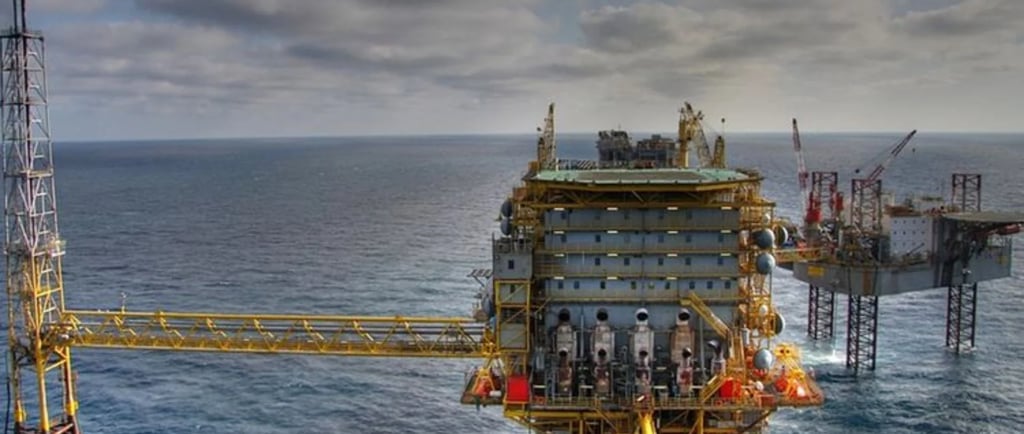Pakistan: Oil Discovery Sparks Regional Speculation
The recent discovery of substantial oil and gas reserves off Pakistan’s coast offers an unprecedented opportunity for economic transformation. Can Pakistan navigate its domestic challenges to emerge as a global energy leader?
PAKISTAN
Roman Frantsyian
12/28/20243 min read


Recent geological surveys off the coast of Pakistan have revealed the potential for significant oil and natural gas reserves. If these estimates are confirmed, the country could become a leading player in the global energy market. The discovery promises transformative changes for Pakistan, both economically and geopolitically, offering a chance to address chronic domestic crises. However, realising this potential is fraught with significant challenges.
Pakistan’s energy dependence is critical. The country imports up to 85% of its oil and 30% of its natural gas, spending approximately $17.5 billion annually on these needs. For an economy mired in a debt crisis, such expenditures are a substantial burden, limiting development and worsening the budget deficit. Social tensions are escalating as electricity prices have surged by 150% since 2021, depriving millions of basic services and leading to frequent power outages even in major cities. These energy challenges have also impacted industries, particularly the textile sector, which contributes 60% of Pakistan’s exports. In 2023, the sector’s export potential dropped by $1 billion due to fuel shortages.
The estimated oil and gas reserves off Pakistan’s coast rank among the largest globally. If developed, these resources could significantly reduce dependence on energy imports, narrow the budget deficit, improve energy availability for both industry and households, and attract substantial foreign investment for infrastructure development. Official projections suggest Pakistan could become the world’s fourth-largest oil reserve holder, comparable to Canada’s 170 billion barrels. This opens the possibility of Pakistan becoming a major player in the global energy system.
Oil and gas development has the potential to transform Pakistan’s economy. Direct benefits include job creation and the development of related industries such as logistics, construction, processing, and energy services. Preliminary estimates indicate that infrastructure construction alone could attract investments of up to $5 billion over the first 5-7 years, offering a significant economic stimulus and poverty reduction opportunities. Furthermore, reducing energy imports would free up funds to strengthen international reserves, critical for Pakistan’s financial stability.
On the global stage, this discovery enhances Pakistan’s strategic importance. South Asia has long been a region of interest for major powers, and Pakistan’s newfound energy resources could alter the regional dynamics. China, already a significant investor through the Belt and Road Initiative, is expected to play a pivotal role in developing these fields by providing technology, capital, and political support. Pakistan may also attract partnerships with countries like Turkey and Russia, given their demonstrated interest in energy projects. The West, seeking alternative energy sources amid sanctions on Russia, could also view Pakistan as a potential partner, especially for natural gas, which is vital to the global transition to renewable energy.
Despite these optimistic prospects, Pakistan faces serious challenges. Security concerns, particularly in the Balochistan region where key reserves are located, pose significant risks. Separatist activity and militant attacks, such as those in 2023 that claimed the lives of Chinese engineers, have heightened foreign investors’ concerns and increased security costs for companies. Corruption and political instability remain major obstacles. Frequent changes in administration and policy reversals undermine business confidence, exemplified by the fact that 15 of 18 sites in the government’s 2023 mining auction received no bids.
China’s strategic partnership with Pakistan presents both opportunities and risks. While Beijing’s investments through the China-Pakistan Economic Corridor (CPEC) could provide essential funding and expertise, increased dependence on China might limit Pakistan’s sovereignty in decision-making. This dynamic could also heighten tensions with other regional players, such as India and the United States.
The discovery of oil and gas offers extensive economic opportunities. Infrastructure development, including drilling facilities, pipelines, and processing plants, will require significant investment and create thousands of jobs. Industries such as steel, cement, and transportation are likely to benefit from increased activity in energy development. Moreover, the boost in domestic energy supply could reduce costs for energy-intensive industries, making Pakistani exports more competitive on the global market. The transition from an energy importer to a potential exporter could stabilise Pakistan’s economy. Improved energy access would support industrial growth, while reduced import dependency could ease the balance of payments crisis. International investments could stimulate innovation in extraction technologies and energy logistics, creating opportunities for local and global partnerships.
Pakistan’s recent discovery of significant oil and gas reserves marks a historic opportunity for the country to address its energy crises, stimulate economic growth, and enhance its geopolitical standing. However, success will depend on addressing critical challenges, including security risks, corruption, and political instability. The next 7-10 years will be decisive. If Pakistan capitalises on its potential, it could emerge as a leading energy power, reshaping its future and securing a prominent place in the global energy market. Conversely, failure to address these issues could result in missed opportunities, leaving the nation to grapple with ongoing crises amid growing global competition.


